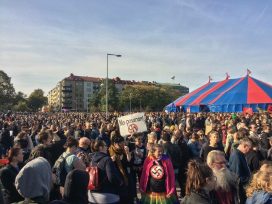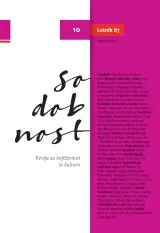Ola Larsmo
(b.1957 in Sundbyberg, Sweden) is a novelist, essayist, and critic, living in Uppsala. From 1984 to 1990 he was editor at the literary journal Bonniers Litterära Magasin. Larsmo has published numerous books, including: Engelska parken (novel, 1985), Odysséer (essays, 1990), Stumheten (short stories, 1991), Himmel och jord må brinna (novel, 1993), Maroonberget (novel, 1996), net.wars (with Lars Ilshammar, essays, 1993), Norra Vasa 133 (novel, 1999), Andra sidan (essays, 2001), En glänta i skogen (novel, 2004), and Djävulssonaten (essay/reportage, August 2007).
Articles
Does the rise of “new media” signal the death of the “old”? No,
writes Ola Larsmo in his cordial critique of this “dinosaur theory”,
which has been dug up again in the debate about weblogs. What we see
in the media landscape is not the survival of the fittest but instead
a more and more differentiated media structure, where different types
of media find their niche or their own special way to function,
writes Larsmo.
A struggle for modernity
What does Sweden's rejection of the euro really mean?
Sweden, or so it is often claimed, rejected the euro in the recent referendum out of sense of isolationism and a perceived superiority towards its European neighbours. Far from it, argues Ola Larsmo: what was at stake for those who voted against the euro was not Europe itself but a certain concept of modernity and progress.


